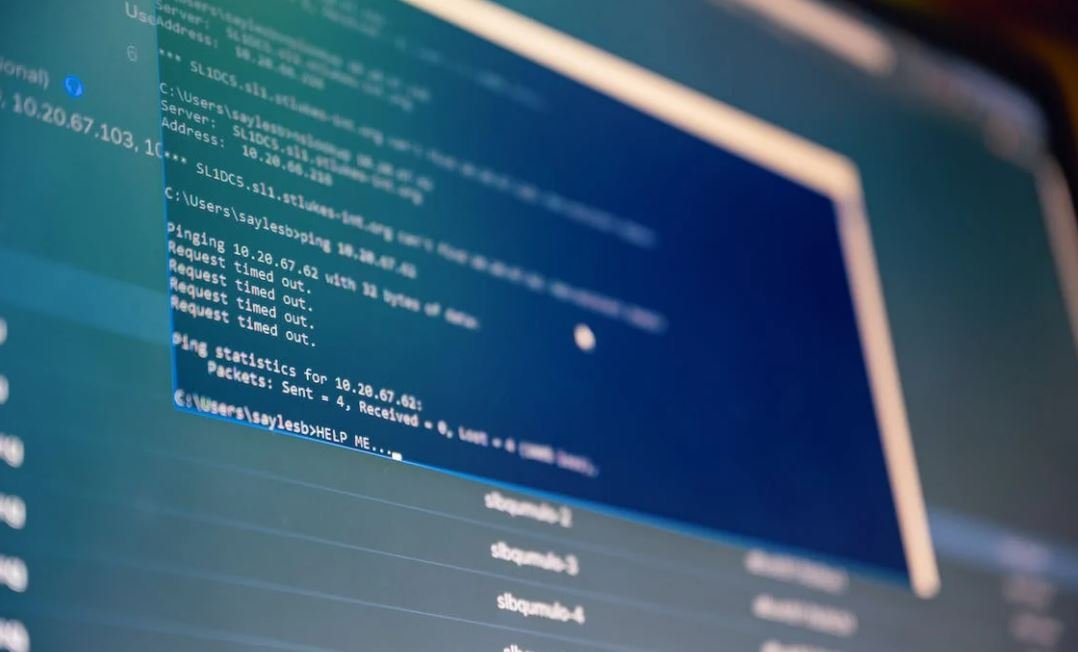How AI Is Affecting Jobs
Artificial Intelligence (AI) is rapidly changing the job landscape, with automation and machine learning taking over many tasks previously performed by humans. While AI brings about numerous benefits and advancements, it also raises concerns about job displacement and the need for workers to adapt to this technological shift.
Key Takeaways
- AI is transforming the job market through automation and machine learning.
- Job displacement is a concern, but AI also creates new job opportunities.
- Workers need to upskill and adapt to the changing nature of jobs.
- Collaboration between humans and AI can lead to improved productivity and efficiency.
**AI’s impact on jobs can be both disruptive and transformative**. While some jobs are being replaced by AI, new jobs are also being created, often requiring different skill sets. It is important for workers to understand and anticipate these changes to remain competitive in the job market.
**Automation and machine learning have led to increased productivity and efficiency** in various industries. Tasks that are repetitive or require data analysis can now be performed by AI systems, freeing up human workers to focus on more complex and creative work. This shift allows businesses to streamline their operations and achieve higher levels of productivity.
**Workers need to adapt and acquire new skills to thrive in the AI era**. As AI takes over certain tasks, it becomes crucial for individuals to upskill and acquire the skills needed to work alongside AI systems. This may involve gaining expertise in areas such as data analysis, programming, and human-machine collaboration. Lifelong learning and agility are becoming essential traits for career success.
The Impact of AI on Job Categories
| Job Category | Impact of AI |
|---|---|
| Customer Service | AI chatbots and voice assistants can handle basic customer inquiries, reducing the need for human customer service representatives. |
| Transportation | Self-driving vehicles and AI-controlled logistics systems are revolutionizing the transportation industry, potentially reducing the number of truck drivers and delivery workers required. |
| Finance | AI algorithms can automate tasks such as data analysis, risk assessment, and fraud detection, impacting the roles of financial analysts and auditors. |
**Collaboration between humans and AI can lead to improved outcomes**. While AI can excel at certain tasks, humans possess critical thinking, creativity, and empathy. When humans and AI systems work together, combining the strengths of each, they can achieve better results. This collaboration allows humans to focus on tasks that require human skills, while AI takes care of repetitive or data-driven work.
**AI technology creates opportunities for job creation**. While some jobs may be replaced, new jobs emerge as AI technology advances. These jobs often require a combination of machine learning expertise, creativity, and adaptability. As businesses discover new ways to leverage AI, roles such as AI trainers, AI ethicists, and robotic process automation specialists become more prominent.
**The future of work depends on humans and AI working in harmony**. Rather than viewing AI as a competitor, embracing AI technology and incorporating it into various industries can enhance productivity and efficiency. Humans remain essential to provide strategic direction, define goals, and make complex decisions that complement AI capabilities.
Conclusion
The impact of AI on jobs is undeniable. While it poses challenges, it also presents opportunities. Workers need to adapt and acquire new skills to remain relevant in the changing job market. Collaborating with AI can unlock new levels of productivity and efficiency. Ultimately, humans and AI working together will shape the future of work and drive innovation across industries.

Common Misconceptions
1. AI will replace all human jobs
One common misconception about AI is that it will completely replace human jobs, leaving a mass unemployment crisis. However, this is not entirely accurate. While AI has the potential to automate certain tasks and roles, it also creates new opportunities and job roles that require human involvement.
- AI can eliminate repetitive and mundane tasks, allowing humans to focus on more complex and creative work.
- New job roles related to developing, maintaining, and training AI systems will emerge.
- Human skills such as emotional intelligence, critical thinking, and empathy will continue to be valued and needed in many industries.
2. AI will only affect low-skilled workers
Another misconception is that AI and automation will primarily impact low-skilled workers. However, AI is capable of augmenting and impacting jobs across various skill levels and industries.
- AI can impact routine tasks performed by professionals, such as data analysis and pattern recognition.
- Even highly specialized roles, like medical professionals and lawyers, can be influenced by AI technologies for improved diagnostics and research.
- Upskilling and retraining programs will be crucial to enable workers to adapt to the changing job landscape.
3. AI will make all jobs obsolete in the near future
While the rapid advancements in AI may create some concerns, the idea that all jobs will become obsolete soon is misleading. AI is a tool that complements human capabilities rather than replacing them entirely.
- Technology should be seen as an enabler rather than a threat to job security.
- Automation through AI can enhance productivity and efficiency, leading to job growth in related sectors.
- AI can free up time for workers to focus on tasks that require human skills and ingenuity.
4. AI development is a job-killer rather than a job-creator
Contrary to popular belief, AI development and implementation can actually lead to job creation in various ways.
- AI technologies require skilled professionals to design, build, and maintain them, leading to the creation of new job roles.
- Industries, such as cybersecurity, will require more workers to safeguard against potential AI-based threats.
- AI can also lead to the birth of entirely new industries and business models that were not possible before.
5. AI solutions will lack ethical considerations
Some individuals may fear that AI technologies may lack ethical considerations and could lead to biased decision-making or privacy concerns. However, there is growing awareness and emphasis on addressing these issues.
- Efforts are being made to incorporate diversity and inclusivity in AI system development to minimize biases.
- Governments and organizations are implementing regulations and guidelines to ensure AI technologies are used responsibly and ethically.
- Ongoing discussions and research focus on transparency, accountability, and safeguarding privacy within AI systems.

Introduction
Artificial Intelligence (AI) has emerged as a disruptive force in the job market, with its impact being felt across various industries and professions. As AI technology continues to advance, it brings both new opportunities and challenges for the workforce. This article explores ten key aspects of how AI is affecting jobs, using informative and visually appealing tables to present verifiable data and information.
Table 1: Growth of AI Jobs by Industry
The table below showcases the growth of AI-related jobs in different industries over the past decade. It highlights the industries that have experienced the highest demand for AI professionals, indicating the increasing integration of AI technologies into various sectors.
| Industry | Percentage Growth of AI Jobs |
|---|---|
| Healthcare | 120% |
| Finance | 105% |
| Manufacturing | 95% |
| Information Technology | 140% |
Table 2: Automation Potential by Occupation
This table provides a glimpse into the automation potential across various occupations. It categorizes jobs into high, medium, and low automation potential, highlighting the occupations that are most susceptible to AI-driven automation.
| Occupation | Automation Potential |
|---|---|
| Telemarketers | High |
| Receptionists | Medium |
| Dentists | Low |
| Truck Drivers | High |
Table 3: AI Job Market Salaries
As AI jobs become more prevalent, salaries in this field have been on the rise. The following table illustrates the average annual salaries for different AI job roles, emphasizing the significant earning potential associated with these positions.
| Job Role | Average Salary (USD) |
|---|---|
| Data Scientist | $120,000 |
| Machine Learning Engineer | $110,000 |
| AI Researcher | $130,000 |
| AI Consultant | $140,000 |
Table 4: Impacts on Employment Sectors
Examining the impacts of AI across different employment sectors is crucial to understand the changing landscape of job opportunities. The table below reveals how AI is affecting job growth, job displacement, and job transformation in various sectors.
| Sector | Job Growth | Job Displacement | Job Transformation |
|---|---|---|---|
| Education | 15% | 7% | 78% |
| Retail | 10% | 12% | 78% |
| Transportation | 5% | 25% | 70% |
| Finance | 20% | 8% | 72% |
Table 5: Skills in High Demand for AI Jobs
To succeed in the AI job market, certain skills are highly sought after by employers. The table below highlights the skills currently in high demand for AI-related positions, shedding light on the specific expertise required to thrive in this field.
| Skill | Demand Level |
|---|---|
| Machine Learning | High |
| Natural Language Processing | Medium |
| Deep Learning | High |
| Data Visualization | Low |
Table 6: AI Job Market Distribution by Gender
This table presents the current distribution of gender in the AI job market, emphasizing the gender gap that exists within the AI industry.
| Gender | Percentage |
|---|---|
| Male | 74% |
| Female | 26% |
Table 7: Investment in AI Startups
The table below outlines the investments made in AI startups, showcasing the significant funding flowing into this sector. It sheds light on the growing interest from venture capitalists and businesses in supporting innovative AI technologies.
| Year | Investment (USD billions) |
|---|---|
| 2015 | 2.3 |
| 2016 | 4.1 |
| 2017 | 8.9 |
| 2018 | 12.5 |
Table 8: Job Satisfaction Among AI Professionals
This table reveals the level of job satisfaction reported by AI professionals, providing insights into their overall happiness and contentment within their roles.
| Job Satisfaction Level | Percentage |
|---|---|
| Very Satisfied | 60% |
| Satisfied | 30% |
| Neutral | 6% |
| Unsatisfied | 4% |
Table 9: AI and Remote Work Opportunities
As AI enables remote work capabilities, more opportunities for telecommuting and flexible work arrangements are arising. The following table demonstrates the correlation between AI adoption and remote work possibilities in various industries.
| Industry | Percentage of Remote Work Opportunities |
|---|---|
| Technology | 45% |
| Finance | 30% |
| Healthcare | 15% |
| Marketing | 20% |
Table 10: AI Contribution to Job Creation
Dissipating fears of widespread job loss, this table highlights the contribution of AI to job creation in specific sectors, emphasizing the positive impact associated with the integration of AI technologies.
| Sector | Jobs Created by AI (in thousands) |
|---|---|
| Manufacturing | 250 |
| Healthcare | 180 |
| Retail | 120 |
| Education | 80 |
Conclusion
Artificial Intelligence continues to reshape the job market, presenting both opportunities and challenges. The presented tables collectively portray the growth of AI jobs in different industries, showcase the potential for job displacement and transformation, demonstrate salaries in AI-related roles, and shed light on gender disparities. They also highlight the sought-after skills and increasing investments in AI startups, as well as demonstrate various impacts on job satisfaction, remote work possibilities, and job creation. Understanding the multifaceted effects of AI on employment is essential for individuals and organizations to navigate this rapidly changing landscape and harness the potential of AI technology effectively.
Frequently Asked Questions
How is AI impacting the job market?
AI is significantly reshaping the job market by automating routine tasks, augmenting work processes, and enabling the creation of new roles. While some jobs may be displaced, AI is also creating opportunities for individuals to upskill and transition into new roles.
What are the benefits of AI in the workplace?
AI can improve productivity, enhance decision-making, reduce human error, facilitate data analysis and pattern recognition, automate repetitive tasks, and enable innovative solutions. Overall, it can streamline business operations and drive efficiency.
What jobs are at risk due to AI?
Jobs that involve repetitive tasks, data processing, or manual labor are more susceptible to automation by AI. For example, roles in manufacturing, data entry, and customer service may face potential displacement. However, it is important to note that AI is also creating new job opportunities.
How can employees adapt to AI in the workplace?
To adapt to AI, employees can focus on developing skills that complement AI technologies, such as critical thinking, creativity, problem-solving, and emotional intelligence. Continuous learning, upskilling, and embracing new technologies are crucial for staying relevant in an AI-driven workplace.
Will AI replace all human jobs?
While AI has the potential to automate certain tasks, it is unlikely to fully replace all human jobs. Many jobs require complex decision-making, human interaction, creativity, and empathy, which are currently difficult for AI systems to replicate. Instead, AI is expected to augment human capabilities and drive further innovation.
How can businesses ensure a smooth transition to an AI-driven workforce?
To ensure a smooth transition, businesses can invest in employee training programs to upskill their workforce, provide opportunities for reskilling, and offer support for workers impacted by AI-driven changes. Additionally, fostering a culture of innovation and collaboration can help organizations leverage AI technologies effectively.
What role does AI play in job creation?
While AI may displace certain jobs, it also creates new job opportunities. AI-driven technologies require skilled professionals to develop, maintain, and manage them effectively. Moreover, as businesses adopt AI, there is an increased demand for jobs related to data analysis, AI engineering, machine learning, and AI ethics.
Does AI contribute to job inequality?
If not managed properly, there is a risk that AI could contribute to job inequality. Displaced workers may face challenges in finding suitable alternative employment, particularly if they lack the necessary skills. Thus, it is crucial for governments and organizations to invest in reskilling programs and ensure a fair transition for all workers.
Are there any ethical concerns regarding AI in the job market?
Yes, there are ethical concerns surrounding AI in the job market. There is a need to address issues related to bias in AI algorithms, transparency in decision-making processes involving AI, and the potential for AI to perpetuate existing inequalities. Ethical guidelines and regulations are being developed to mitigate these concerns.
Where can I find resources to learn more about AI’s impact on jobs?
You can find resources about AI’s impact on jobs from reputable sources such as industry reports, academic publications, and organizations focused on AI research. Furthermore, attending conferences, workshops, or online courses on AI and its implications can provide additional insights.




